
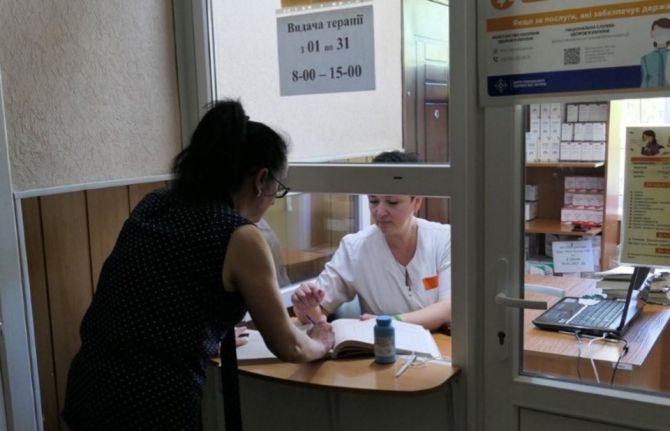
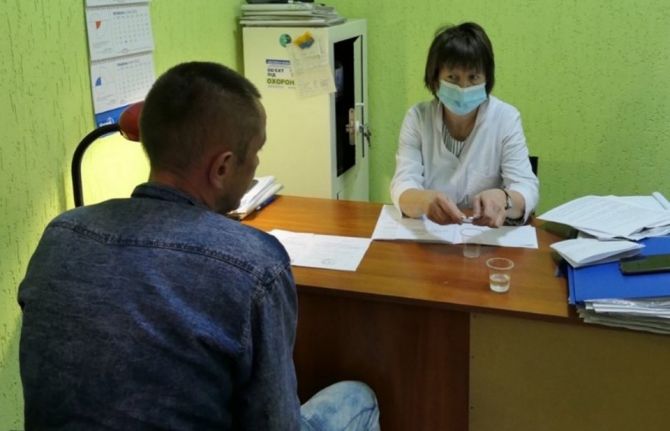
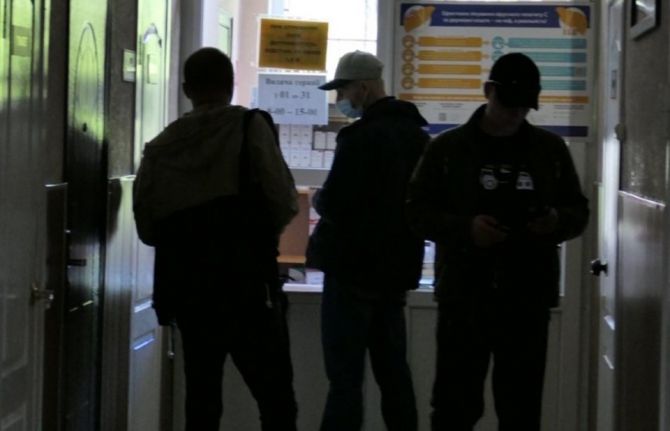
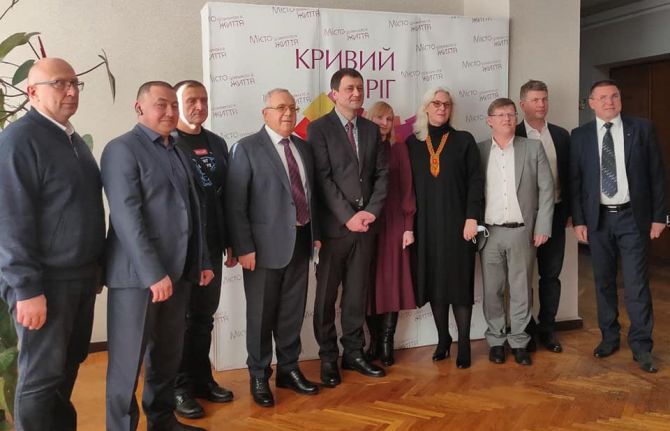
Feature Story
Kryvyi Rih AIDS centre continues to provide HIV services despite the war in Ukraine
25 May 2022
25 May 2022 25 May 2022On 25 November 2021, the city of Kryvyi Rih, the fourth largest city in Ukraine, signed the Paris Declaration to end the AIDS epidemic in cities. The city is an important economic and industrial centre, a major transport hub and the birthplace of the Ukrainian President, Volodymyr Zelensky.
A group created by the city administration to develop and implement the Paris Declaration determined the main areas of work, which included the expansion of HIV prevention services for key populations through community organizations and the scale-up of HIV testing through family doctors, among others.
Physicians across the city were trained in HIV, while Gennady Kruglenko, the chief doctor at the Kryvyi Rih municipal AIDS centre, visited Odesa and Dnipro to learn about their experience with implementing the Paris Declaration.
“We were seriously preparing to start this work,” said Mr Kruglenko. “But the war slowed down our plans. Our region borders the areas of active military operations, but our centre continues providing full-scale HIV services, and we are not going to stop. And we have not abandoned the main goal of the Paris Declaration: ending the AIDS epidemic.”
The Kryvyi Rih AIDS centre has been operating since 1994, and today there are about 10 000 people living with HIV accessing HIV treatment from it. People can get HIV treatment from five different sites, which makes it much easier for people living in different parts of Kryvyi Rih. Kryvyi Rih is the longest city in Europe, the length of which exceeds 120 km.
The AIDS centre continues to work as a reference laboratory for several regional centres. Its modern equipment allows the performance of all necessary tests, including diagnosis confirmation, CD4 counts, viral load and others, to be performed. People living with HIV with complex cases, for example opportunistic infections, that require the attention of experienced doctors are referred to the centre.
Marina Baidachenko, an infectious diseases doctor at the AIDS centre, says that the centre currently also provides services to people who have fled the war. “There are people who move within the country, who apply for services through a network of our social workers. The system in Ukraine is such that no matter where the patient is, he or she can receive treatment through the general system,” she said.
Each doctor providing specialized HIV care in Ukraine has access to the medical records of patients in a general electronic registry, with strict confidentiality measures in place. This ensures that the records of people living with HIV who move from one region to another can be accessed in the new region, thereby allowing the maximum number of displaced patients to remain on antiretroviral therapy, despite the war.
According to Ms Baidachenko, the war is felt every minute. “Air raids are very frequent, missiles are flying,” she said. The employees of the AIDS centre must go to the first floor or basement, which have been adapted as bomb shelters, every time the air raid siren sounds.
“To issue antiretroviral therapy to a person, you need to open his or her electronic card in the computer, create an electronic prescription through the registry and send it to the warehouse where the medicines are issued. When there are 200–300 patients in the centre, it’s hard to tell them to wait until the alarm is over,” said Ms Baidachenko.
With the help of a UNAIDS emergency grant, the centre equipped additional workplaces with laptop computers, office equipment and Wi-Fi. Now prescriptions take only minutes and doctors can move to a safe place when the siren sounds and take their computers and continue to serve people.
Close cooperation with community organizations, such as the Public Health Charity Foundation of Krivyi Rih, has become even more important during the war.
“Each of our doctors has about 2000 people on antiretroviral therapy. Now with the war, there are only two doctors left. They have to give a prescription, check the tests, explain the medical aspects—they simply don’t have time for other important issues, such as psychological support,” said Mr Kruglenko.
According to Alexander Lee, the Project Manager of the Public Health Charity Foundation, the war has changed the format and scope of the organization’s work. “Many of our clients were left alone with their problems and fears because family members left Ukraine. The response required increased mobility of the organization’s employees for consultations and assistance to clients in remote areas of the city,” he said.
Social workers are also helping to connect medical facilities with people who use drugs, gay men and other men who have sex with men and members of other communities, who have become even more vulnerable.
“Therefore, in the chain of services, everyone does a small, but very “big”, thing,” Mr Kruglenko added.
Raman Khailevich, the UNAIDS Country Director for Ukraine, emphasized that UNAIDS supports the city’s efforts to continue providing all HIV services in close cooperation with civil society organizations. “Such interaction in peacetime was one of the most important components of the successful AIDS response in Kryvyi Rih, and in wartime it is the only way not to lose what has been achieved but also to continue moving towards the goal of ending AIDS, saving every life,” he said.
Region/country
Related
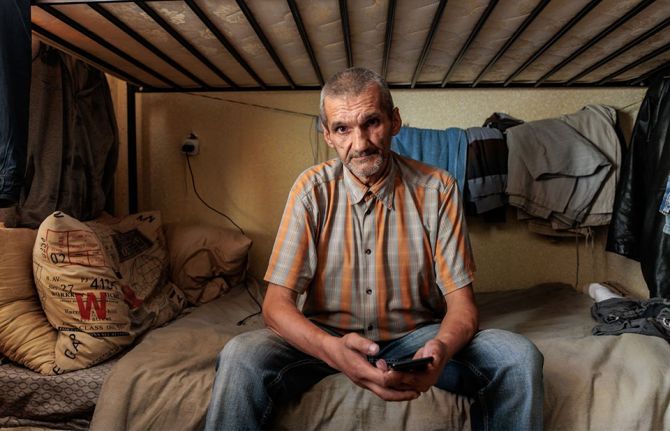 Ukraine: Keeping people in care
Ukraine: Keeping people in care

23 February 2026
 Women, HIV, and war: a triple burden
Women, HIV, and war: a triple burden

12 September 2025

